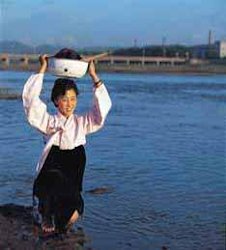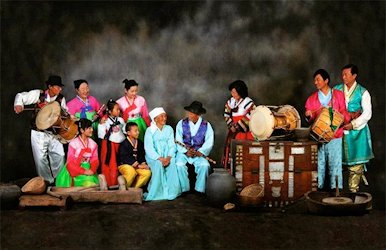|
24. Chinese Nationalities (Korean Minority) -- Minorities by Alphabetic Sequence |
|||

|

|

|
|
| Korean Lady | Korean Ladies | Korean Ladies | |
|
Korean Minority Koreans immigrants have been filtering into China for centuries. They began in the seventeenth century, but did not occur in sizable numbers until the nineteenth. Once rice growers, they have lately joined in the industrialization of The Chinese Northeast. Recently due to the famine and troubles in North Korea, more and more are fleeing into China. China has imposed harsh penalties on anyone harboring illegal Koreans to stem the tide of new arrivals. The Koreans are found in Jilin, Heilongjiang, and Liaoning Provinces near the Korean border. This nationality's culture and language are the same as in Korea. They are part of the Altaic Korean ethno linguistic group. The Chinese refer to Korean as Chaoxian. Chinese people of Korean descent are comfortable regarding themselves as part of the Chinese nation and see no contradiction between their Korean ethnicity and Chinese nationality. However, this dual identity has come into conflict with the Korean ethnic nationalism of South Koreans. In a 2002 poll of 393 South Korean and Korean Chinese university students by Im Gyesun, 86 percent of Korean Chinese answered that they would reject Korean citizenship and would support China in a soccer game between China and South Korea. South Koreans expressed frustration and confusion at the Chaoxianzu's conception of China, rather than Korea, as their joguk. Yet Korean cultural identity has been strengthened in China since the 1990s, and the Chaoxianzu are "at the forefront of insisting on the use of their own language in the education system". Despite the Chaoxianzu's strong assertion of their cultural identity in recent years, the Chaoxianzu are relatively free of tensions with the majority Han Chinese and harbor no secessionist aspirations. Reasons that have been put forth for this harmony include the destitution of North Korea, a shared Confucianism, and a lack of a religious cleavage between the Koreans and the Han. |
|||
| Return to Alphabetic List On to No. 25 Minority Lahu ⇨ | |||